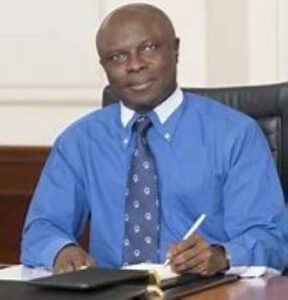Ghana needs good commercial terms for iron ore exploration – Consultant
 Mr. Henry Antwi, an Australian-based Ghanaian Mining Consultant and Mineral Economist, has called for due diligence in a bid to promote investment for the development of Ghana’s iron and steel.
Mr. Henry Antwi, an Australian-based Ghanaian Mining Consultant and Mineral Economist, has called for due diligence in a bid to promote investment for the development of Ghana’s iron and steel.
“It is laudable to promote Ghana’s mineral and metal potential at international conferences, however, we need to get back to the drawing board and first re-evaluate our strategy to secure good commercial terms for the nation,” he argued.
From his perspective, the government should strive to engage the services of a competent and qualified institution or person in iron ore exploration and geological resource estimation to lead the exploration campaign for the Ghana Integrated and Steel Development Corporation (GISSDEC).
Mr. Antwi made the call in a document presented to the Ghana News Agency (GNA), Accra, on his views on the nation’s campaign to woo investors for Ghana’s iron ore exploration.
According to him, it was appropriate that “we moved Ghana’s iron ore potential to a minimum of indicated resource under the Joint Ore Reserves Committee (JORC) Code, a professional code of practice that sets minimum standards for public reporting of mineral exploration results, mineral resources, and ore reserves, or any of the internationally accepted codes.
“Getting the resource to indicated category and complying with an international quality assurance and quality control standard will engender confidence in investors,” he emphasized.
Additionally, getting the resource estimated under an internationally accepted code, by a competent person, is also a corporate disclosure requirement should public listing be considered for raising capital.
This will ensure that prefeasibility studies are completed to determine the economic and technical viability, coupled with a better understanding of the quality and contaminant levels of the iron ore, and to determine the ideal route for value addition.
“Once this is established with transparency and corporate governance principles, GIISDEC can then develop information memorandum to potential local and international investors to tender on a competitive basis,” Mr. Antwi stated.
With this in place, it would then allow the government to dictate the transaction terms, having de-risked the project, and this would ensure a reasonable entry fee payment by the joint venture partner, the Mining Consultant and Mineral Economist advised.
In his analysis, he indicated that it made more economic sense to develop the iron ore into pellets than the steelmaking route being considered.
“This is because the high capital cost and price of gas-based energy did not make steel making economically attractive as compared to a pelletizing plant at the time of evaluation.
“The capacity of the pelletizing plant could be easily expanded to feed both international and domestic steel making plants when the economics make it justifiable for a domestic plant,” Mr. Antwi said.
He stressed that consideration be given to the capital requirements, quantum of gas and price, and the overall economics when deciding on a steel plant versus pelletizing plant at the initial stage.
Later, the government can consider an addition of steel making using cash flow from the pellet plant as part of the funding strategy for the steel plant.
In his submission, the Mining Consultant and Mineral Economist stressed that iron ore beneficiation plant and steel making technologies should be assessed as part of the prefeasibility study and the best technical and economic option taken through the detailed feasibility stage with the joint venture partners.
He said the selected joint venture partner should have a proven record of accomplishment in iron and steel making to derive good returns for the country.
Source: GNA
